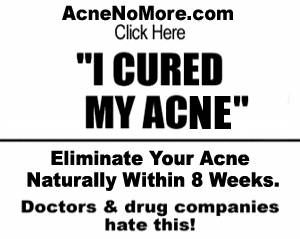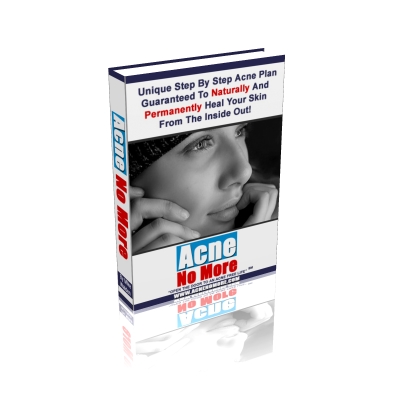Understanding the Causes and Treatment of Acne
Acne, the inflammation of skin pores that leads to various skin problems like blackheads, whiteheads, or pimples, is a condition that is commonly misunderstood. Often referred to as acne vulgaris, it is important to delve deeper into the complexities of this skin condition.
The Role of Bacteria in Acne Formation
Acne is a skin disease characterized by inflammation, and it can have multiple causes. One significant factor contributing to acne development is the presence of bacteria within the skin pores. The body, in response to this type of bacteria, triggers an allergic reaction, resulting in the accumulation of white blood cells to combat the allergy. Consequently, the pores become clogged, allowing oil secretions to accumulate and creating an ideal environment for bacterial growth. Ultimately, the formation of pimples occurs, which appear as red bumps resembling small boils. These bumps are filled with pus, a result of the body's fight against the bacterial infection.
Visit: Acne Cysts and Their Treatment
Dispelling Common Misconceptions
For many years, acne was erroneously attributed to poor hygiene and specific dietary choices. Fried foods and chocolate were often blamed, possibly due to their popularity among teenagers who commonly experience acne. However, scientific evidence has refuted any direct link between diet and acne. While personal hygiene and a balanced diet are essential for overall skin health, excessive washing can damage the skin and exacerbate acne. Nonetheless, maintaining good hygiene practices and avoiding pore-clogging makeup can contribute positively to managing acne symptoms.
Effective Treatments for Acne
Various treatments aim to eliminate the bacteria responsible for acne. Oral antibiotics like tetracycline, doxycycline, and minocycline have been employed to combat acne-causing bacteria. Additionally, topical antibiotics and bactericides such as Benzoyl peroxide or erythromycin can be effective. However, it is worth noting that the bacteria, commonly referred to as "P. acnes," can develop resistance to antibiotics over time. Benzoyl peroxide, on the other hand, acts as an oxidizer and does not seem to generate bacterial resistance. While these treatments provide temporary relief, acne may resurface after discontinuation.
The Role of Exfoliation in Managing Acne
Exfoliating the skin plays a crucial role in preventing acne formation. This process can be achieved through the use of a cloth, liquid scrubs, or chemical substances. Chemical exfoliators like salicylic acid and glycolic acid facilitate the removal of the top layer of skin, preventing the accumulation of dead skin cells that block pores when combined with excess oil. By reducing the breeding ground for bacteria, these exfoliating agents contribute to managing acne symptoms effectively.
Over-the-Counter Remedies for Acne
Several over-the-counter remedies can aid in the fight against acne and the bacteria causing it. Salicylic acid, found in many face wash products, softens the skin and unclogs pores by eliminating dead skin cells. Sulfur, another common ingredient in over-the-counter products, has proven beneficial for many individuals. Additionally, glycolic acid, which is present in both anti-aging products and acne medications, can be effective in treating acne.
Natural Remedies for Acne
In recent years, natural remedies have gained popularity in combating acne and its associated bacteria. Tea tree oil, for instance, possesses antibacterial properties and reduces redness and inflammation. Similar to Benzoyl peroxide, tea tree oil is less likely to cause skin irritation and is readily available at health food stores. Acupuncture is another alternative method employed by some individuals to alleviate hormonal imbalances and acne symptoms. It is often accompanied by suggested lifestyle changes and dietary modifications, including reduced consumption of dairy products. Light therapy, involving the exposure of acne-prone skin to blue light, has also garnered attention as a natural remedy. This treatment harnesses the insensitivity of acne-causing bacteria to blue light, with sessions lasting approximately fifteen minutes, twice a week, for four weeks. Although not all patients have experienced favorable results, the absence of harmful side effects makes this therapy an attractive option.
Ongoing Efforts to Combat Acne
Medical professionals are continuously striving to develop improved methods for fighting acne-causing bacteria. As research progresses, more effective treatments are expected to emerge. In the meantime, the treatments discussed in this article provide valuable options for managing acne symptoms effectively.
Acne No More! A Path to Clear Skin
Are you tired of dealing with acne breakouts? Acne No More offers you the solution to cure your acne and regain your natural inner balance. Developed by Mike Walden, this revolutionary system has helped thousands of individuals achieve acne freedom faster than ever imagined. Regardless of past unsuccessful attempts, Acne No More provides the clear skin success system you have been searching for! [Click Here to Learn More about AcneNoMore.com]

























0 Comments